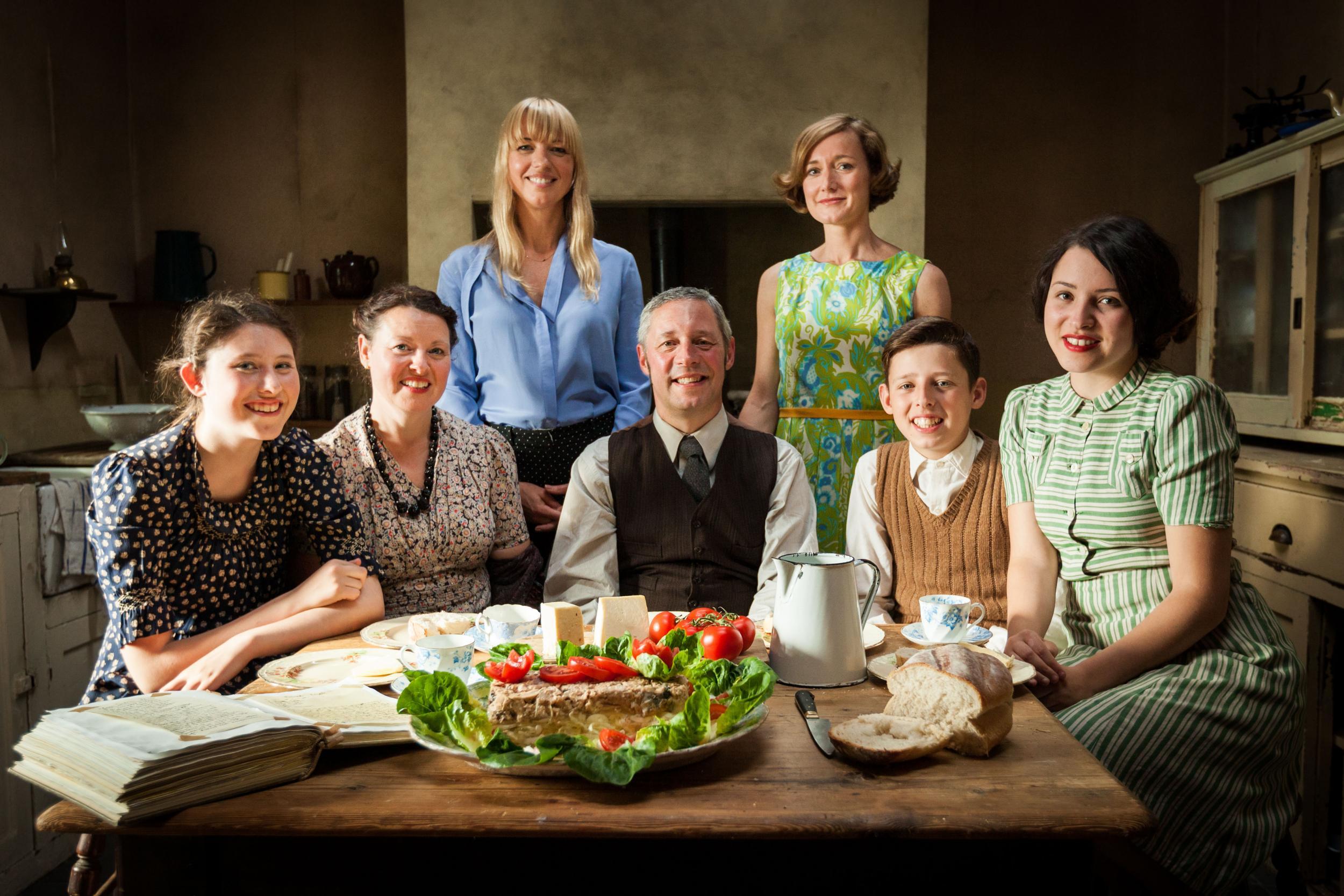TV Review: Back In Time for Tea (BBC2)
Plus: Islam, Women and Me (BBC1)

“Is it a pasta maker?” asked one of the kids when confronted in the backyard by what some of us readily recognised as a clothes wringer. I don’t think it was scripted, and it rather neatly summed up the difference between British life now and a century or so ago. The teenager disoriented by this cast-iron relic of a time before washing machines was a member of the Ellis family of Bradford, the latest guinea pigs to find themselves transported, trapped and forced to eat tripe in the North of England of the inter-war era by a BBC film crew. It was like a cross between Doctor Who and a Hovis advert. Sara Cox, professional Northerner, hosted t’proceedings, and Polly Russell is the accessible social historian dropping in from the future.
This is the first of six episodes and we’ve all seen so many of these family-goes-back-in-time-to-live-like their-grandparents-authentically exercises. There’s a familiar drill to these. Pick a pleasant, bright conventional family with kids. Throw the set designers in and fill the terraced house with as much period furniture, old-style foods and nick-nacks as can be scavenged from the props department and eBay. Install an outside privy, with squares of newspaper for loo roll (it can be fun to choose which title). Then get the costume gang to fit them out with, in this case, flat caps for the boys and clogs and shawls for the girls. Then they cook meals, go to Blackpool, try a shift at t’mill and encounter something called “George Formby”. Add in a little social commentary and one hour later you get the desired verdict: “We was poor but happy.”
This isn’t socialistic propaganda, but, in exactly the right measure, we saw the “trade cycle” at work – boom and bust hitting helpless families – and the evils of the means test for benefits, where a “nosey”, an official assessor would come round to value your chattels and determine whether you should get the 15 shillings a week dole money (£47 at today’s prices). Anything above about £20-worth of possessions or savings (£1,250 in 2018 money) would see your benefits payments summarily docked by some unresponsive bureaucrat. Couldn’t happen now, eh?
As an antidote to the sort of fawning around the aristocracy you see with Downton Abbey meeting a family with nowt but bread and lard to keep them going was as welcome as a few lumps of coal on a cold night. But I’d like maybe a bit less social niceness, to be honest. No-one in these happy families seems to go down the pub and get drunk, as well they might, and well they did. No-one smokes. No-one gambles. No-one gets done for shoplifting or gets rickets or uses a back-street abortionist. No-one gets beaten up for being gay. No-one turns to Oswald Mosley’s British Union of Fascists. Without sounding too miserabilist I’d like to see a bit more of this as well as the recipes for Whitby Polony and dressed tripe. I really don’t think I can watch another poor mam slaving over some inedible offal-based pie for tea.
Last night I met, thanks to wonderful BBC documentary Islam, Women and Me, a Muslim millennial: Mehreen Bain. Mehreen, in fact, meets men through the Muslim dating app Muzmatch, because she is 28, still lives with her parents and is looking for a husband. Not so much an arranged marriage for her, then, as one guided by algorithms and pursued via smartphone. Which is how it should be.
But for Mehreen, things are not as simple as that. She wants to know: “Can I be a strong independent woman and a good Muslim, or does Islam not give me that right?”
By the end of her odyssey around Sharia councils, people who have left the faith in protest about the position of women, and a Muslim woman who believes that it is in fact a feminist religion, I was gratified that Ms Bain had found the answer to her question. It is that you can resolve or resist any dilemma, real or imagined, suggested or imposed upon you by simply defining yourself in the way you wish. So it was that she opened up diplomatic talks with her loving over-protective dad about her 11pm curfew; she explored with each of her dates whether they might be cool both with her wearing a hijab – and also a bikini on a beach holiday in Morrocco. Her solution seems to be a pick-n-mix form of Islam, which reflects reality. Every Muslim and every Muslim family defines their religion essentially for themselves, including total or partial rejection of it, just as Christians do, as it happens. I wouldn’t patronise Ms Baig by saying she’s a great spokesperson for her generation of Muslims or for her gender, but she did ask the right questions, interview the right people, and get some of the right answers to her dilemmas. She is a strong independent woman, and no power on earth, or above it, is going to change that.
Subscribe to Independent Premium to bookmark this article
Want to bookmark your favourite articles and stories to read or reference later? Start your Independent Premium subscription today.

Join our commenting forum
Join thought-provoking conversations, follow other Independent readers and see their replies